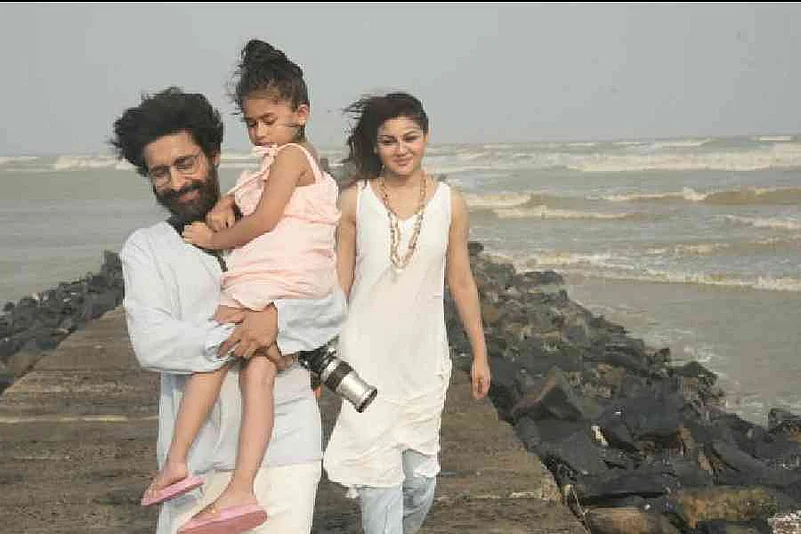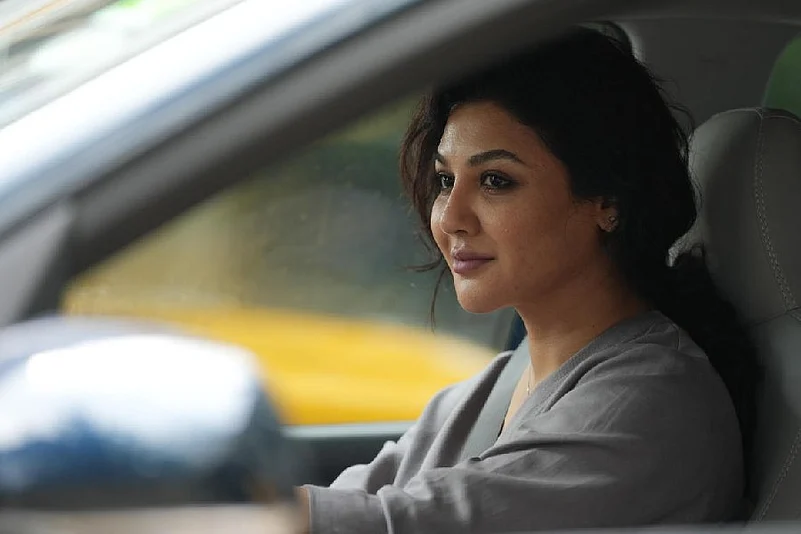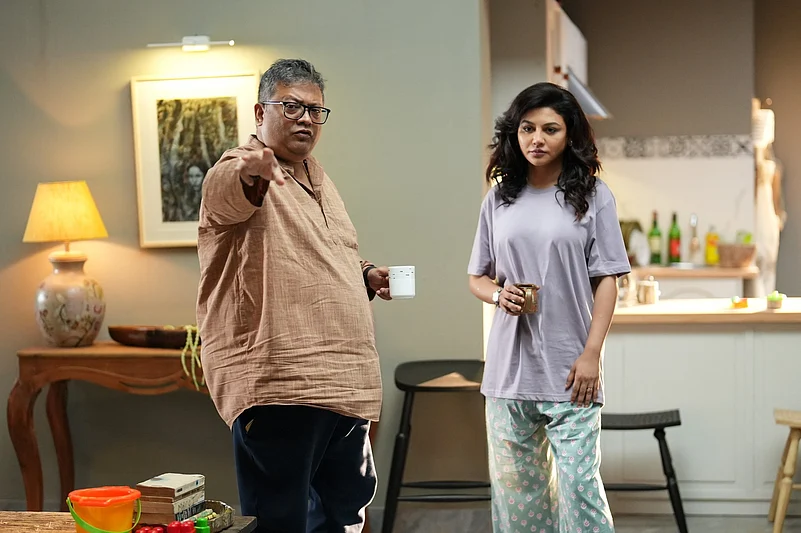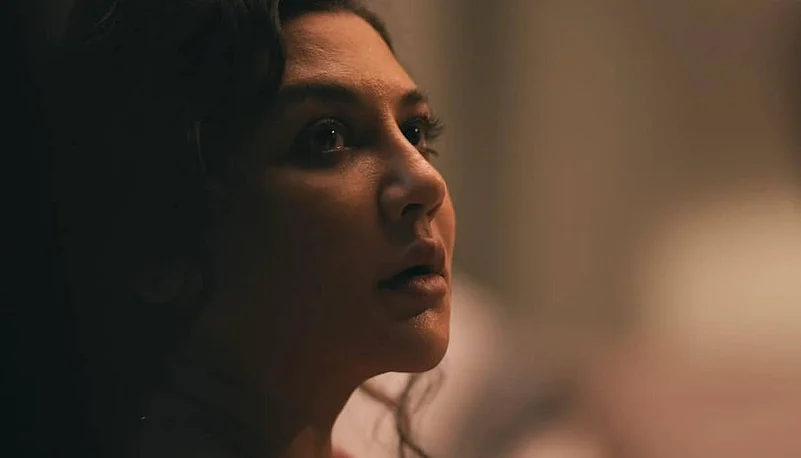Aniruddha Roy Chowdhury’s first Bangla film in a decade, Dear Maa, carries his gentle look at relationships cast in limbo. Shorn of dramatic exaggeration, we re-encounter the director’s restraint—a lucidity cutting into the heart of conflicts and resentments. In a refreshing sea of change from the rabid decibel levels of today’s cinema, Dear Maa works in a quieter register, pleasingly given emotional shape by Bickram Ghosh’s music. With delicacy and unassuming control, Chowdhury draws inner landscapes into clearer form. For the most part, the film stays measured, probing and always dignified. It’s a drama that slowly flowers into something rich and moving.
Brinda’s (Jaya Ahsan) teenage daughter, Jhimli, hasn’t returned from school. Anxious, Brinda approaches the police, though the officer, Asitabha (Saswata Chatterjee), looks like he couldn’t care less. Jhimli (Ahana) left her phone at home. Clearly, the officer adds, she doesn’t want to be found. Brinda insists, however, that she has a ‘peaceful’ equation with her daughter; that there had been no fight which might have precipitated Jhimli’s going away. Gradually, Chowdhury establishes the mother-daughter relationship. The fact that Jhimli was adopted by Brinda and her late husband, Awrko (Chandan Roy Sanyal exuding a ruffled charm) drives a wedge through the plot.

Brinda confesses not feeling a surge of maternal emotion—the kind that’s idealised in art. She adds that her role is more of a caregiver. She doubts she’d have the flush of maternal love even if she did conceive. She doesn’t see it inherent to her. What comes easier is her career, rising through the ranks. Brinda is a workaholic and not the least apologetic for it. She’s clear what she wants. But her partner’s insistence makes her reconsider. Awrko is shown to have been the quintessential hands-on dad. He willingly embraces what she views as a crushing, limiting responsibility. He’s perfectly happy to take on both parents’ duties while Brinda goes about career expansion. But Brinda also grows to occasionally grudge the deeper intimacy between Jhimli and her father. She regretfully tells Awrko their child never quite got to know her. He’s wholly, gladly attuned to Jhimli, indulging her every prank and complaint.
Awrko is a giddy sport for their kid at all times, whereas Brinda stays neck-deep in work. It’s what the deal was when Brinda agreed to adoption. With him gone, she has no one to quite level with raising Jhimli.
Ahsan finds a delicate balance in Brinda’s growing into hesitant motherhood. She never renders her an unsympathetic, cold creation. There are times when Brinda is almost too severe and distant as a parent, shirking her daughter’s obvious plea for togetherness. She’s always hustling, so caught up in ensuring she and her daughter get by well that warmth and family jostle to hold value. Survival trumps affection, or being emotionally available for her daughter’s needs. Even when Jhimli first came into their lives, Brinda wasn’t instantly comfortable. She takes her time, chafing against the epitome of a mother, only gradually slipping into it without even noticing.

The script, which Chowdhury has written with Sakyajit Bhattacharya, generously lends Brinda time and space, within which she oscillates about her relationship with Jhimli. Ahsan gets a gamut to play with, flitting from tentativeness around her daughter to tacit ownership. Then there are the waves of hurt, betrayal and bitterness Brinda contends with, once she realises Jhimli is drifting from her. Ahsan is wrenching as a mother, confronted with her child admitting no more love for her. The daughter chafes at the mother, seeking affection and care elsewhere. Chowdhury maps out the frays and distance between the two with nurturing patience. In a beautifully judged performance, Ahsan moves between being a mother who might get inaccessible at times and one reinstating love for her child. Watch out for Anubha Fatehpuria whose quiet gravity grows indelibly by the end.

Visually, however, Dear Maa occasionally tends to border on the trite, despite an everyday lushness Avik Mukhopadhyay's camerawork situates. A literal storm envelops characters amidst a fallout. Even seaside scenes—which represent loss and change in the film—have snatches of tasteless special effects that distract more than heighten cresting drama. An entire clutch of briefer scenes ought to have been ditched at the editing table. But these are minor grievances in an otherwise nicely understated, emotionally truthful film. Chowdhury weaves in anxieties over blood relations, permission to love and affirming acceptance with an unshowy, throwaway maturity, which make Dear Maa a sobering experience.

















